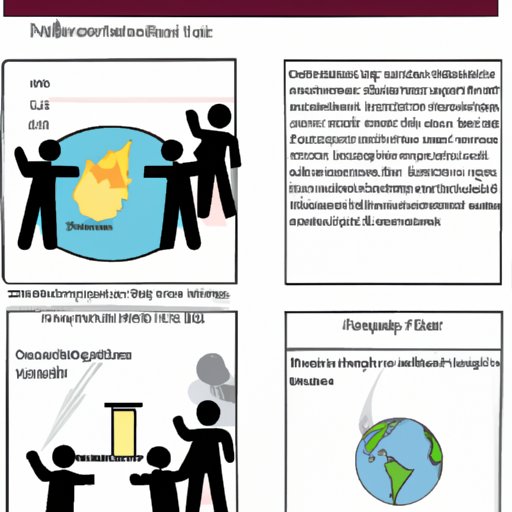Introduction
Science education is an important part of any school curriculum. Teaching science helps students gain knowledge and skills that will serve them throughout their lives. It also encourages critical thinking, problem-solving, and communication—all of which are essential skills in the modern world. Furthermore, science education can help foster a greater appreciation of the natural world and promote environmental stewardship.
Create a Science Curriculum
Creating a science curriculum is an important step when teaching science. The curriculum should be tailored to the needs of the students and the goals of the program. The first step is to identify the goals and objectives of the course. These should be specific, measurable, and achievable. Once these have been established, the teacher should select appropriate materials such as textbooks, articles, experiments, and activities. Finally, the lessons should be structured in a way that is engaging and accessible for the students.
Incorporate Experiments and Projects
Experiments and projects are great ways to engage students in science education. When selecting topics, it is important to choose ones that are relevant to the students’ lives. This will help them connect to the material and make it more meaningful. Additionally, hands-on activities are a great way to get students excited about science. These activities should be designed to challenge the students and encourage exploration. Group work can also be beneficial, as it provides an opportunity for collaboration and discussion.
Use Visual Aids to Demonstrate Concepts
Visual aids are a great tool for teaching science. Pictures, diagrams, and graphs can help explain complex concepts and make them easier to understand. Videos related to the topic can also be used to demonstrate scientific principles. Additionally, student participation can be encouraged by having them create visuals or act out experiments. This type of activity can help students retain information and engage with the material.

Ask Questions to Encourage Critical Thinking
Asking questions is one of the best ways to encourage critical thinking. Open-ended questions are particularly useful, as they require students to think more deeply about the material. Additionally, challenging students to think creatively can help them develop innovative solutions to problems. It is also important to evaluate answers and offer feedback so that students can learn from their mistakes and improve their understanding of the subject.

Make Connections Between Science and Everyday Life
Making connections between science and everyday life can help make the material more interesting and applicable to the students. Utilizing real-life examples is a great way to bring science to life. Discussing applications of scientific principles can also help students understand how science is used in the world around them. Additionally, relating science to other areas of study can help students see the interconnectedness of different disciplines.
Encourage Students to Research Topics of Interest
Allowing time for independent research is an important part of science education. Giving students the opportunity to explore topics of interest can help them develop their own ideas and become more engaged with the material. Teachers should provide resources for further exploration and support student inquiry. Additionally, encouraging students to present their findings can help them hone their communication and presentation skills.

Discuss Current Events Related to Science
Keeping up with current events related to science is a great way to keep students engaged. Introducing topics in an engaging way can help spark conversations and facilitate discussion. Additionally, discussing the implications of new developments can help students think critically about the material. “By engaging students in meaningful discussions about current events, teachers can help students develop an understanding of the relevance of science in their lives,” says Dr. Roberta Golinkoff, professor of psychology at the University of Delaware.
Conclusion
Teaching science can be a rewarding experience for both teachers and students. Science education can help students gain knowledge and skills that will serve them throughout their lives. Additionally, it can help foster a greater appreciation for the natural world and promote environmental stewardship. By creating a science curriculum, incorporating experiments and projects, using visual aids, asking questions, making connections between science and everyday life, encouraging students to research topics of interest, and discussing current events, teachers can help their students learn and grow. We hope this guide has provided you with helpful tips for teaching science.
(Note: Is this article not meeting your expectations? Do you have knowledge or insights to share? Unlock new opportunities and expand your reach by joining our authors team. Click Registration to join us and share your expertise with our readers.)
